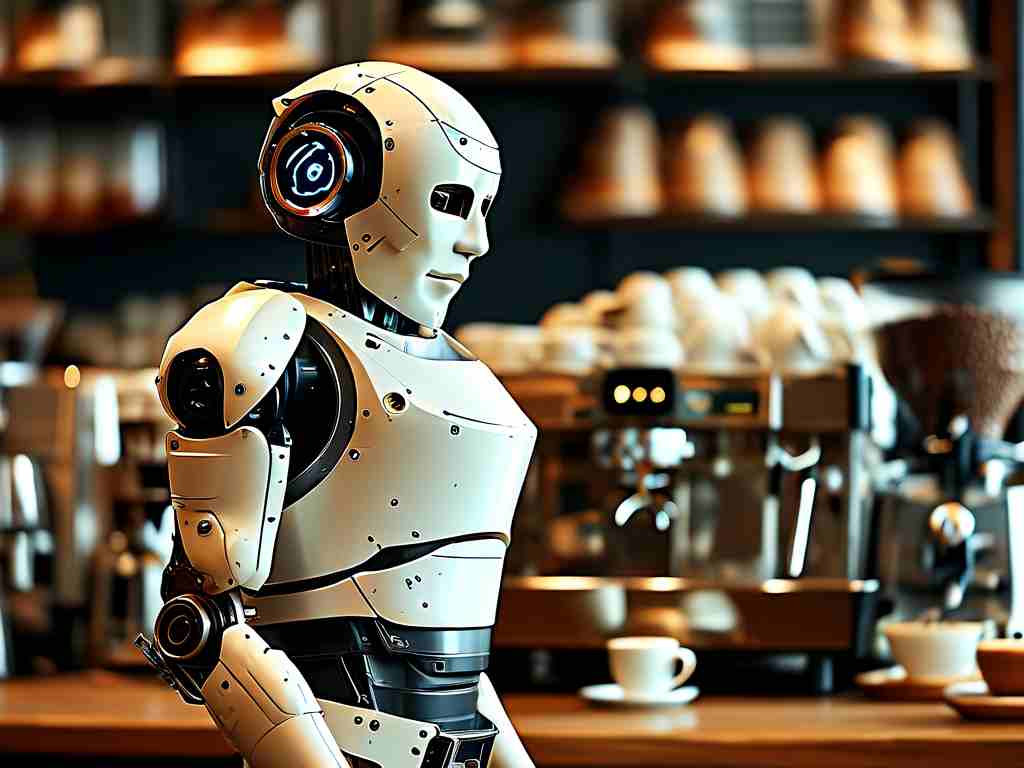In the bustling landscape of modern food and beverage technology, Liaoyuan’s coffee robotics has emerged as a groundbreaking force, blending precision engineering with artificial intelligence to redefine how consumers experience their daily caffeine fix. This innovation is not merely about automating a routine task—it represents a paradigm shift in hospitality efficiency, customization, and sustainability.

The Core of Liaoyuan’s Coffee Robotics
At the heart of Liaoyuan’s technology lies a sophisticated network of sensors, machine learning algorithms, and robotic actuators designed to mimic—and often surpass—the skills of human baristas. Unlike traditional coffee machines that follow preset recipes, these robots analyze real-time data such as bean freshness, water temperature, and even ambient humidity to adjust brewing parameters dynamically. For instance, if a coffee bean batch has a higher moisture content, the system automatically reduces extraction time to prevent over-bitter results.
What sets Liaoyuan apart is its proprietary AI platform, which learns from customer preferences. By integrating facial recognition or mobile app data, the system remembers individual taste profiles. A returning customer who prefers a double-shot oat milk latte with extra foam will find their order ready before they even reach the counter. This level of personalization bridges the gap between mass production and bespoke service.
Operational Efficiency and Sustainability
Commercial kitchens and cafes face constant pressure to balance speed with quality. Liaoyuan’s robots address this challenge by operating 24/7 with near-zero downtime. A single unit can prepare up to 120 complex beverages per hour—twice the output of a human-staffed station—while maintaining consistent taste. This efficiency is particularly valuable in high-traffic venues like airports or office complexes, where morning rushes demand rapid service.
Sustainability is another cornerstone. The robots are engineered to minimize waste, using exact measurements for ingredients and reducing spillage. Coffee grounds are automatically collected for composting or repurposing into biofuels. Moreover, the machines’ energy consumption is optimized through predictive maintenance algorithms that anticipate component wear, extending hardware lifespan by up to 40% compared to conventional equipment.
Bridging Technology and Human Touch
Critics often argue that automation strips away the “soul” of coffee culture. Liaoyuan counters this by designing robots that enhance rather than replace human interaction. For example, their flagship model features an interactive touchscreen where customers can watch their drink being crafted via live video feed, complete with trivia about the coffee’s origin. Baristas transition into roles as “beverage curators,” focusing on customer engagement and menu innovation while leaving repetitive tasks to machines.
A case study from a pilot café in Shanghai illustrates this synergy. After deploying Liaoyuan’s system, the shop reported a 35% increase in afternoon traffic, attributed to the novelty of robotic service. Staff retention also improved, as employees expressed greater job satisfaction in mentoring the AI system and designing seasonal specialties.
Challenges and Future Prospects
Despite its advantages, adopting coffee robotics requires significant upfront investment. A single Liaoyuan unit costs approximately $60,000, necessitating careful ROI analysis for small businesses. Additionally, technical glitches—though rare—can disrupt operations. The company addresses this with a decentralized support network, offering remote diagnostics and same-day part replacements across major cities.
Looking ahead, Liaoyuan plans to integrate multisensory feedback mechanisms, enabling robots to “taste” beverages using spectral analysis and adjust recipes in real time. Partnerships with dairy-free brands and specialty roasters are also underway to expand menu versatility. As smart cities evolve, these robots could soon be deployed in mobile kiosks or drone delivery systems, bringing barista-grade coffee to underserved rural areas.
In , Liaoyuan’s coffee robotics exemplifies how AI and automation can coexist with human-centric service. By prioritizing adaptability, sustainability, and consumer engagement, this technology isn’t just brewing coffee—it’s percolating a new era for the global foodservice industry.

